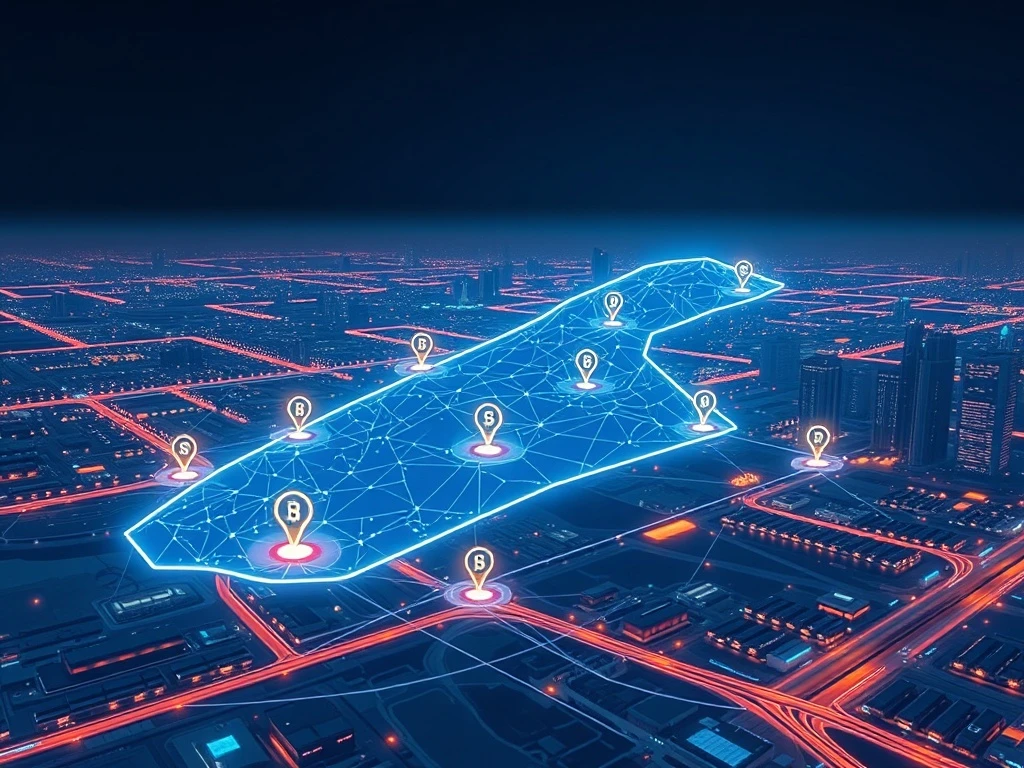Imagine a war-torn territory rebuilt through digital tokens and blockchain governance. The Trump administration’s controversial Gaza reconstruction proposal represents a radical fusion of conflict resolution and cryptocurrency technology that could redefine international development.
The GREAT Trust Framework
The Gaza Reconstitution, Economic Acceleration and Transformation Trust outlines an ambitious ten-year plan. Consequently, this framework proposes US-led trusteeship using innovative blockchain tokenization systems. The administration envisions transforming Gaza through digital infrastructure and smart contracts.
Blockchain Tokenization Mechanics
Land ownership would undergo complete digital transformation through fractional tokenization. Each parcel becomes tradeable digital tokens on secondary markets. Smart contracts would ensure transparent record-keeping while enabling global investment participation. This approach fundamentally changes traditional property rights management.
Three-Phase Governance Structure
The plan implements gradual transition through distinct administrative phases. Initially, Israel would manage humanitarian zones before multilateral trust takeover. Finally, conditional transition to Palestinian authority requires Abraham Accords signing. Each phase utilizes blockchain tokenization for accountability and transparency.
Economic and Ethical Considerations
Relocation economics present significant cost-saving advantages according to proponents. However, critics condemn the profit-driven displacement model as catastrophic capitalism. International law experts question the legal foundations of such大规模 population transfer programs.
Smart City Development
AI-powered urban centers represent the plan’s technological cornerstone. These cities would feature integrated digital systems managing all services. Infrastructure projects include ports, railways, and data centers resembling Gulf region developments. The blockchain tokenization system enables efficient resource allocation.
Cryptocurrency Sector Alignment
This proposal strengthens Trump’s relationship with digital asset industries. It demonstrates practical application of blockchain beyond financial transactions. The plan could establish precedent for future conflict zone reconstruction using cryptocurrency technologies.
International Response and Legal Challenges
Immediate backlash from human rights organizations highlights ethical concerns. Legal experts debate potential war crime implications under international law. The Council on American-Islamic Relations condemns the proposal’s fundamental premises.
Future Implications
This controversial plan could redefine post-conflict reconstruction methodologies worldwide. Successful implementation might encourage similar approaches in other regions. However, failure could damage blockchain technology’s reputation in international development circles.
FAQs
What is the GREAT Trust proposal?
The Gaza Reconstitution, Economic Acceleration and Transformation Trust is a 38-page plan proposing blockchain-based reconstruction of Gaza through land tokenization and US-led trusteeship.
How does blockchain tokenization work in this context?
Land parcels are converted into digital tokens traded on secondary markets, managed through smart contracts for transparent ownership records and investment opportunities.
What are the main criticisms of the plan?
Critics argue it represents catastrophic capitalism, potentially violates international law, lacks Palestinian participation, and commodifies human displacement for profit.
How does this align with Trump’s cryptocurrency policies?
The plan strengthens connections with crypto industries and demonstrates practical application of blockchain technology beyond financial markets, supporting Trump’s pro-cryptocurrency stance.
What are the smart city components?
The proposal includes six to eight AI-powered cities with digital service management, plus infrastructure projects like ports, railways, and data centers.
What legal challenges does the plan face?
International law experts question its compliance with Geneva Conventions, particularly regarding population transfer and occupation laws in conflict zones.








